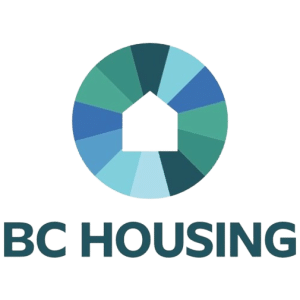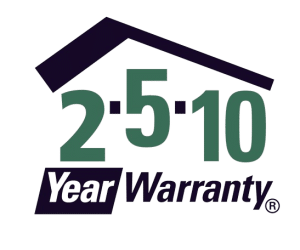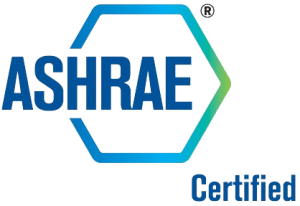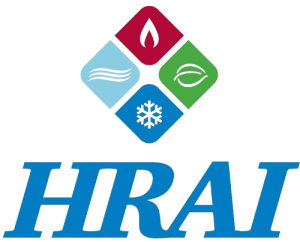MONOLITH HOUSING SOLUTION | About Us
Monolith Housing
Sustainability Is Our Passion
Monolith Housing has been servicing the Greater Vancouver Area for more than a decade! From North & West Vancouver all the way to Coquitlam and beyond. Monolith Housing Solution provides trusted, qualified, and experienced energy consultants committed to reducing the environmental impact of home constructions. We offer cost-effective solutions that meet energy compliance requirements for sustainability and energy efficiency programs.
Mission Statement
OUR MISSION
Empowering sustainable living through innovative energy solutions, prioritizing customers and the planet alike.
- Latest Technology
- Sustainability
- Always Finish On Time
- Custom Designs


Our Process
HOW WE DO

Expertise
Benefit from the expertise of seasoned professionals dedicated to energy conservation and sustainability.

Tailored Solutions
Receive customized energy-saving plans designed specifically for your home's unique needs and circumstances.

Cost Saving
Enjoy significant long-term savings on your energy bills through our efficient and effective solutions.
Our Founder
Shahin Arvandi is a Senior Energy and Building Science specialist with over 15 years of expertise in energy-efficient construction, Net-Zero housing, building commissioning, and high-performance building design. His extensive experience includes energy modeling, retrofitting, and managing complex projects from inception to completion.
Certified in Energy Management (CEM), LEED AP, and Heat Loss/Gain Calculations, Shahin applies his deep understanding of building systems and energy efficiency to deliver sustainable and practical solutions. His focus on cutting-edge technologies ensures every project meets the highest performance standards.
Committed to excellence, Shahin provides tailored services that optimize energy usage and enhance building performance, making him a trusted leader in the industry.


Free Consultation
Call us! Let’s talk about your project.
Licensed Energy Advisor
Our Certificates
Becoming a certified Energy Advisor in British Columbia requires meeting high standards set by Natural Resources Canada, including rigorous training, examinations, and professional affiliation with authorized organizations. This ensures advisors have the expertise to deliver reliable energy assessments and consulting.
Clients Serviced
Star Rating
Projects Completed
Average Hydro Savings

Where Modernity Meets Sustainability
OUR PROJECTS
FAQ
YOU ASK, WE ANSWER
Implemented by the Canadian government, EnerGuide is a rating system that assesses the energy efficiency of various products and appliances in Canada, including homes, vehicles, and certain household appliances .
Here’s a breakdown of the EnerGuide Rating System:
- EnerGuide for Products: This helps you identify the most efficient products within a specific category. For instance, you can use EnerGuide labels to compare refrigerators and choose the one that uses the least energy .
- EnerGuide for Vehicles: Similar to products, EnerGuide labels on vehicles allow you to compare fuel efficiency and pick a car that best suits your needs while minimizing fuel consumption .
- EnerGuide for Homes: This program offers two options: EnerGuide labels and EnerGuide home evaluations. EnerGuide labels provide an estimated annual energy consumption rating for your home. EnerGuide home evaluations, on the other hand, involve a more comprehensive analysis by a qualified energy advisor who suggests improvements to enhance your home’s energy efficiency.
The EnerGuide Rating System uses a scale that has undergone changes. As of 2016, the rating system for homes is based on gigajoules (GJ) per year. A lower GJ/year indicates better energy performance. Ideally, a home that produces more energy than it consumes would have a rating of zero
The EnerGuide rating for a home isn’t a direct measurement of energy use, but rather a computer simulation based on a detailed analysis of your home’s features. Here’s the process:
Data Collection by an Energy Advisor: A certified professional visits your home and gathers information on various aspects that affect energy use. This includes:
- Measurements of the house’s size and structure
- Level of insulation in walls, ceilings, and basement
- Details on windows, doors, and their locations
- Size and efficiency ratings of heating, cooling, and water heating systems
- Information on ventilation equipment
- Any other factors relevant to your home’s energy performance
Software Simulation: The advisor enters the collected data into special software provided by Natural Resources Canada. This software considers standard operating conditions and factors in your local climate to estimate your home’s annual energy consumption.
EnerGuide Rating and Label: Based on the simulation results, your home receives an EnerGuide rating measured in gigajoules (GJ) per year. The lower this number, the less energy your home is expected to consume annually. The EnerGuide label will also include:
- A comparison of your home’s performance to a typical new house with similar characteristics.
- A breakdown of energy consumption by source (electricity, gas, etc.)
- Information on any on-site renewable energy generation (solar panels) which can further improve your rating.
Important to Note: The EnerGuide rating estimates energy use based on standard assumptions and doesn’t account for occupant behavior. How you use your home (heating settings, etc.) can significantly impact actual energy consumption.
The energy efficiency report you receive after an EnerGuide home evaluation provides a wealth of information to help you understand your home’s energy use and identify areas for improvement. Here’s a breakdown of what you can expect to find in the report:
- EnerGuide Rating and Label: This is the core output of the evaluation. The report will display your home’s EnerGuide rating, a numerical value in gigajoules (GJ) per year, indicating its estimated annual energy consumption. Lower GJ signifies better energy efficiency . The report will also include an EnerGuide label that you can display on your home.
- Homeowner Information Sheet: This section delves deeper into the details assessed during the evaluation. It explains how different components of your house, like insulation levels and equipment efficiency, contribute to its overall energy use.
- Renovation Upgrade Report: This is the roadmap to improving your home’s energy performance. It provides a list of recommended upgrades and retrofits, along with detailed explanations from the energy advisor. The report will estimate the potential energy savings and cost benefits associated with each upgrade, helping you prioritize your renovations.
- Additional Tips: The report may also include supplementary information and suggestions for behavioral changes that can further enhance your home’s energy efficiency. This could involve recommendations for adjusting thermostat settings, utilizing natural light, or upgrading appliances to more energy-efficient models.
By combining the EnerGuide rating, homeowner information, renovation roadmap, and additional tips, the energy efficiency report empowers you to make informed decisions about improving your home’s comfort and reducing energy consumption.
Improving your home’s EnerGuide rating has the potential to increase its value, but the exact impact can vary depending on several factors. Here’s a breakdown of how it can influence your home’s worth:
Increased Appeal to Eco-Conscious Buyers:
- Growing Demand: With rising energy costs and growing environmental concerns, many homebuyers prioritize energy efficiency. A high EnerGuide rating demonstrates your home’s energy-saving capabilities, making it more attractive to this segment of buyers, potentially leading to a higher selling price.
Reduced Running Costs:
- Lower Utility Bills: A more energy-efficient home translates to lower energy bills for future homeowners. This can be a significant selling point, especially in regions with high energy costs. Potential buyers may be willing to pay more upfront for a home with lower anticipated running costs.
Improved Marketability:
- Faster Sales: A high EnerGuide rating can differentiate your home from similar properties on the market. This can lead to a quicker sale, potentially at a higher price point compared to houses with lower ratings.
Some of the Companies We Work With
MEMBERSHIPS & PROGRAMS















